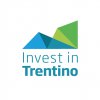
Thanks to an Open Innovation project involving the Trentino research and innovation system, GPI Group's Riedl Phasys robot warehouse is now more automated and competitive. The technology developed in collaboration with the Fondazione Bruno Kessler, the University of Trento and Dolomiti Robotics now allows the Trentino colossus's machinery to automatically load up to 360 packs of drugs per hour and also manage cylindrical bottles. A considerable step forward, which avoids the need for an operator and frees up crucial resources for patient care and customer service activities.
Riedl Phasys
Riedl Phasys is a system for the automated and robotic management of the storage and distribution of medicines for pharmacies, wholesalers and hospitals of all sizes and levels of complexity. It is one of the GPI Group's most exported products, thanks to its speed, precision and ability to adapt to the needs of a variety of customers.
GPI and the Open Innvoation project
GPI Group develop technology and services dedicated to Health and Social Care and the Public Administration. Founded over 30 years ago in Trento, it has grown thanks to significant investments in R&D, with the aim of transferring scientific, technological, functional and process know-how applied to the e-health, e-welfare and wellness sectors. Today it has more than 200 customers, many of them abroad in countries such as Israel, Austria, Japan and Argentina.
In 2020, before the start of the Covid pandemic, it opened a call for solutions addressed to the Trentino research and innovation system with the aim of increasing the degree of automation of Riedl Phasys. Specifically, the need was to focus on the loading phase of incoming drugs, to make it increasingly automated and able to handle even cylindrical bottles. FBK, UniTrento and Dolomiti Robotics, a startup specialising in collaborative robotics and now based in Progetto Manifattura in Rovereto, the green hub of Trentino Sviluppo, answered the call.
Partners
«Thanks to the work done with partners, we were able to achieve our business objective, which is required to meet certain performance and cost targets. A company's internal R&D is attentive to the needs of the market and everyday life, while external R&D can look more towards the future without being pressured by contingent factors. The balance between these two drives is the ideal condition for creating innovation that really works».
Massimiliano Rossi, Director of GPI Group's Automation SBA
«One of the most important challenges in this project was to be able to offer a product that not only performs well, but is above all reliable. That is why we used artificial intelligence for the process control phase: an innovative choice that allowed us to make a great leap forward. For a startup like Dolomiti Robotics, this was a complex and exciting endeavour».
Fabiano Zenatti, Director of Dolomiti Robotics
«Right from the start, the University of Trento worked enthusiastically together with all scientific and industrial partners involved in the project. After all, supporting companies through their technological challenges and helping them with research to enhance their competitiveness is one of the missions of our university. And doing it all together, in a network, is the added value and the key of the impact of this initiative. The university is committing considerable resources to robotics and industrial automation, which are topics that require constant innovation and in which there are significant investments and high expectations. It is a global bet, which we can face as a system, showing how some geographical areas - and Trentino is one of them - are particularly dynamic and competitive».
Francesca Demichelis, Vice-Rector for Research at the University of Trento
«Recent events, also in light of market globalisation, are making us increasingly aware of the need to rely on digital technologies. The Kessler Foundation’s Vision Technology Unit was able to contribute the necessary expertise to the project to produce a high quality product with a clear advantage over the competition».
Alessandro Cimatti, Director of the Bruno Kessler Foundation’s





